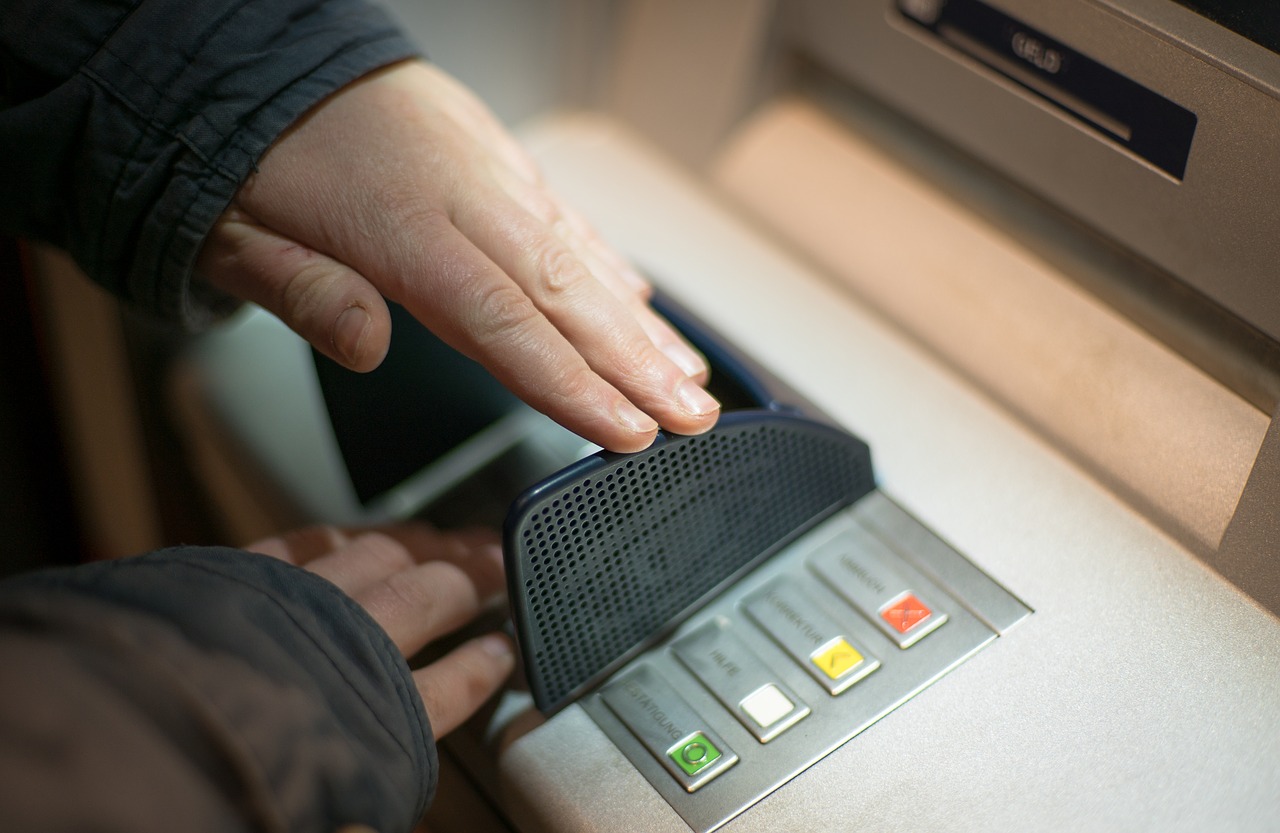
Cybercriminals exploit every opportunity and fear to dupe potential victims into providing their personal and financial information. They also find ways to illegally access your computer by getting you to click on bogus links in emails that launch malware. Especially now, be extra vigilant when you receive an email. “Don’t click on links,” remains prudent advice. Even if the email looks to be from a trusted organization, you must be cautious to protect yourself. We’d like to remind you that PSECU will never call, text, or email you to ask for your account or personal information. If you receive such a communication, ignore it and call us at 800.237.7328.
The Federal Trade Commission (FTC) warns of
two specific types of scams they’re seeing frequently. The first is categorized as an “undelivered goods” scam. It works like this: A scammer sets up an online store that promises cleaning products or medical supplies, for example. They take your credit card information, then never deliver the goods. The FTC recommends doing research prior to doing business with online companies. Check out their name, address, and email address. You can also search for that company plus the words “scam,” “complaint,” and “review” to obtain more details. Only after you’ve vetted the company thoroughly should you provide your credit card information.
The second category of scams involves fake charities that ramp up during times like these. Charity Navigator, CharityWatch, and GuideStar rate charities on how they conduct their collection efforts. If you receive an email or phone call requesting a donation, carefully check the name of the organization because scammers will often use names that are very similar to legitimate charities. Using a credit card to make a donation provides some protection for you. Remember, never pay by gift card or wire transfer!
In cases where they’re selling goods they don’t intend to deliver or creating a bogus charity, the criminal is looking to steal money outright. If you feel that you may have become a victim of one of these two scams and you used your PSECU credit or debit card, please immediately call our Loss Prevention and Security department at 800.237.7328, extension 3111. Also take the time to lock your credit card to prevent more potential fraud. You can do this under Manage Cards in digital banking.
We always work hard to quickly recover funds lost in scams. But what if in addition to scamming you out of money, those criminals have “double-dipped” and made more money by selling your personal and financial information? Because ID theft is often a long play crime, you might not be aware of it for months or even years to come. For this reason, it’s important to monitor your credit health – review your credit reports for any accounts or loans you didn’t open and watch for any wild fluctuations in your credit score. Either could signal your identity has been stolen. For more on the topic, read our blog post
Are You Monitoring Your Credit Health?Times like these bring out the best—and worst—in people. When it comes to helping you protect you and your money, we’re bringing out our best to keep you safe as we face the challenges posed by COVID-19. For all PSECU COVID-19-related information, including status details about our physical locations, please visit the
PSECU Newsroom page.
If you’re experiencing difficulty as a result of the COVID-19 situation, please contact us at 800.237.7328 to speak with one of our representatives about
options that may be available.
Learn more about how you can make healthy financial choices now and in the future.
The content provided in this publication is for informational purposes only. Nothing stated is to be construed as financial or legal advice. Some products not offered by PSECU. PSECU does not endorse any third parties, including, but not limited to, referenced individuals, companies, organizations, products, blogs, or websites. PSECU does not warrant any advice provided by third parties. PSECU does not guarantee the accuracy or completeness of the information provided by third parties. PSECU recommends that you seek the advice of a qualified financial, tax, legal, or other professional if you have questions.
 Cybercriminals exploit every opportunity and fear to dupe potential victims into providing their personal and financial information. They also find ways to illegally access your computer by getting you to click on bogus links in emails that launch malware. Especially now, be extra vigilant when you receive an email. “Don’t click on links,” remains prudent advice. Even if the email looks to be from a trusted organization, you must be cautious to protect yourself. We’d like to remind you that PSECU will never call, text, or email you to ask for your account or personal information. If you receive such a communication, ignore it and call us at 800.237.7328.
The Federal Trade Commission (FTC) warns of two specific types of scams they’re seeing frequently. The first is categorized as an “undelivered goods” scam. It works like this: A scammer sets up an online store that promises cleaning products or medical supplies, for example. They take your credit card information, then never deliver the goods. The FTC recommends doing research prior to doing business with online companies. Check out their name, address, and email address. You can also search for that company plus the words “scam,” “complaint,” and “review” to obtain more details. Only after you’ve vetted the company thoroughly should you provide your credit card information.
The second category of scams involves fake charities that ramp up during times like these. Charity Navigator, CharityWatch, and GuideStar rate charities on how they conduct their collection efforts. If you receive an email or phone call requesting a donation, carefully check the name of the organization because scammers will often use names that are very similar to legitimate charities. Using a credit card to make a donation provides some protection for you. Remember, never pay by gift card or wire transfer!
In cases where they’re selling goods they don’t intend to deliver or creating a bogus charity, the criminal is looking to steal money outright. If you feel that you may have become a victim of one of these two scams and you used your PSECU credit or debit card, please immediately call our Loss Prevention and Security department at 800.237.7328, extension 3111. Also take the time to lock your credit card to prevent more potential fraud. You can do this under Manage Cards in digital banking.
We always work hard to quickly recover funds lost in scams. But what if in addition to scamming you out of money, those criminals have “double-dipped” and made more money by selling your personal and financial information? Because ID theft is often a long play crime, you might not be aware of it for months or even years to come. For this reason, it’s important to monitor your credit health – review your credit reports for any accounts or loans you didn’t open and watch for any wild fluctuations in your credit score. Either could signal your identity has been stolen. For more on the topic, read our blog post Are You Monitoring Your Credit Health?Times like these bring out the best—and worst—in people. When it comes to helping you protect you and your money, we’re bringing out our best to keep you safe as we face the challenges posed by COVID-19. For all PSECU COVID-19-related information, including status details about our physical locations, please visit the PSECU Newsroom page.
If you’re experiencing difficulty as a result of the COVID-19 situation, please contact us at 800.237.7328 to speak with one of our representatives about options that may be available. Learn more about how you can make healthy financial choices now and in the future.
Cybercriminals exploit every opportunity and fear to dupe potential victims into providing their personal and financial information. They also find ways to illegally access your computer by getting you to click on bogus links in emails that launch malware. Especially now, be extra vigilant when you receive an email. “Don’t click on links,” remains prudent advice. Even if the email looks to be from a trusted organization, you must be cautious to protect yourself. We’d like to remind you that PSECU will never call, text, or email you to ask for your account or personal information. If you receive such a communication, ignore it and call us at 800.237.7328.
The Federal Trade Commission (FTC) warns of two specific types of scams they’re seeing frequently. The first is categorized as an “undelivered goods” scam. It works like this: A scammer sets up an online store that promises cleaning products or medical supplies, for example. They take your credit card information, then never deliver the goods. The FTC recommends doing research prior to doing business with online companies. Check out their name, address, and email address. You can also search for that company plus the words “scam,” “complaint,” and “review” to obtain more details. Only after you’ve vetted the company thoroughly should you provide your credit card information.
The second category of scams involves fake charities that ramp up during times like these. Charity Navigator, CharityWatch, and GuideStar rate charities on how they conduct their collection efforts. If you receive an email or phone call requesting a donation, carefully check the name of the organization because scammers will often use names that are very similar to legitimate charities. Using a credit card to make a donation provides some protection for you. Remember, never pay by gift card or wire transfer!
In cases where they’re selling goods they don’t intend to deliver or creating a bogus charity, the criminal is looking to steal money outright. If you feel that you may have become a victim of one of these two scams and you used your PSECU credit or debit card, please immediately call our Loss Prevention and Security department at 800.237.7328, extension 3111. Also take the time to lock your credit card to prevent more potential fraud. You can do this under Manage Cards in digital banking.
We always work hard to quickly recover funds lost in scams. But what if in addition to scamming you out of money, those criminals have “double-dipped” and made more money by selling your personal and financial information? Because ID theft is often a long play crime, you might not be aware of it for months or even years to come. For this reason, it’s important to monitor your credit health – review your credit reports for any accounts or loans you didn’t open and watch for any wild fluctuations in your credit score. Either could signal your identity has been stolen. For more on the topic, read our blog post Are You Monitoring Your Credit Health?Times like these bring out the best—and worst—in people. When it comes to helping you protect you and your money, we’re bringing out our best to keep you safe as we face the challenges posed by COVID-19. For all PSECU COVID-19-related information, including status details about our physical locations, please visit the PSECU Newsroom page.
If you’re experiencing difficulty as a result of the COVID-19 situation, please contact us at 800.237.7328 to speak with one of our representatives about options that may be available. Learn more about how you can make healthy financial choices now and in the future.
